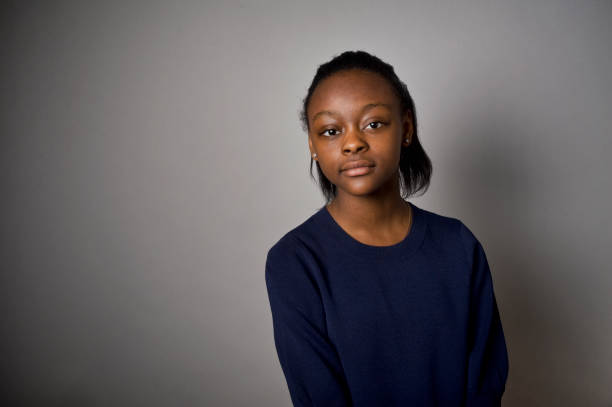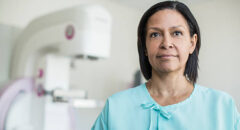
Do you remember the day of your very first period? The feelings that you experienced? I do. I had a mix of emotions for sure. I was nervous, a little uncomfortable, anxious, and believe it or not, empowered. I felt like a new young woman. I was also very, very annoyed because my mother didn’t have a pad that was sized for me. I mean really, that pad was long as heck. I felt like I had on a huge diaper…it actually kind of traumatized me lol. I encourage you all (mamas) to stock up on pads that are sized for your pre-teen/teen. They’ll love you for it.
Now, you may or may not have heard news outlets and/or different publications discussing the many concerns. Studies have found trends toward earlier menarche during the past five to 10 decades in the US as well as globally. In the US, studies have additionally evaluated whether this trend varied by sociodemographic factors of Black girls getting their periods sooner. Yes, you read that right! Globally, Black girls in the United States are getting their very first periods earlier than they did in the 50s and 60s. To give you a little more insight, females born in the early 2000s started menstruating around six months earlier than those born in earlier years. Crazy, right?
I wanted to dig a little deeper into why our girls are getting their periods sooner. As a Black mother who has a Black daughter, I was intrigued, yet cornered at the same time when I heard the news of girls getting their periods sooner. Not only are our girls experiencing a new level of womanhood earlier but they are also dealing with the emotional and physical symptoms that come with periods.
To name a few:
- Moodiness
- Irritability
- Headaches
- Bloating
- Abdominal cramps
- Tender breasts
- Diarrhea
- Constipation
- Muscle aches
Not to mention, starting periods early is associated with an increased risk of disease and other conditions later in life because this leads to a longer exposure to estrogen.
“For example, endometriosis is a painful condition where tissue similar to the uterine lining grows outside the uterus. This often begins with menstruation and research has found a ‘small increased risk’ of endometriosis for those who get their periods before the age of 11,” Dr. Bayo Curry-Winchell says.
RELATED: Understanding Your Menstrual Cycle: Tracking & Cramps
Earlier periods can also contribute to conditions like:
- Early menopause. This occurs when a woman’s ovaries stop producing hormones and she experiences menopause before the age of 45. Keep in mind that the average age of menopause (in the US) is 51 years old.
- Irregular period. Meaning the time, length or amount/flow is different from a normal cycle.
- Type 2 diabetes. In short, this condition is when an individual’s body has trouble controlling blood sugar and using it for energy.
- Cardiovascular disease. In which, it affects an individual’s heart and blood vessels.
- Heart disease. To name a few of the most common heart disease conditions, coronary artery disease, heart failure, abnormal heart rhythm, heart valve disease, etc.
- Breast cancer. This occurs when malignant cells grow in the breast tissue.
- Stroke. Which occurs when blood flow to the brain is disrupted, causing brain cells to die.
“When we start thinking about early periods and risks like cardiovascular disease or breast cancer, we realize how broad the impact can be. As a mother, these statistics are alarming. As a physician, I’ve seen firsthand how early estrogen exposure can have long-term consequences. For a Black girl already navigating society’s challenges, this adds yet another layer. That’s why it’s crucial to address these issues early — with education that goes beyond just managing periods. We need to help our girls understand their bodies and what these changes mean for their future health,” Dr. Curry-Winchell adds.
Now that we’ve talked about the risks of early periods, let’s jump into the nitty gritty.
What contributes to Black girls getting their periods sooner:
- Childhood and adolescent obesity/poor diet is a risk factor for early puberty. Weight affects hormone levels. Any excess fat has the potential to produce more estrogen (the main female steroid hormone that regulates your reproductive system/responsible for developing female sexual characteristics).
- Environmental and human-made factors like endocrine-disrupting chemicals(natural or human-made chemicals that may mimic, block, or interfere with the body’s hormones), such as phthalates (chemical compounds) in cosmetics and personal care products.
- Psychological stress affects the part of your brain that controls your hormone levels, which can cause a young lady to have her period earlier.
- Lower socioeconomic status is a way to describe people based on their economic and sociological standing, this may be a predictor of earlier puberty, due to stressful family environments, lower-income communities, less access to healthy food and habits which translate over to obesity.
“When discussing socioeconomic stress, I often think about how external factors — like stress in lower-income households or neighborhoods — are silently affecting our girls’ health. There’s no escaping the fact that families living with economic hardship are dealing with higher amounts of chronic stress. That stress seeps into everything, including hormone production. The lack of access to healthier food is another major issue. It’s all interconnected. If we really want to protect our girls, we need to look at how disparities in wealth affect something as personal and pivotal as a girl’s menstrual health,” Dr. Curry-Winchell notes.
I want to leave you with some takeaways, tips and suggestions.
- Teach your daughter how to track her periods every month
- Talk with and teach your daughter about proper hygiene and feminine products
- Talk to your daughter about pads and tampons (how to properly use/dispose of them)
- Encourage body positivity
- Encourage self-care (like really, really prioritizing self-care and wellness)
- Talk to your daughter about safe sex (the earlier the better)
“It’s important to teach our girls about their bodies before their periods start. This isn’t just about managing cycles — it’s about knowing why they happen, what to expect, and feeling empowered by the knowledge. When I talk with my daughters, I try to normalize these discussions. I want them to feel comfortable, confident, and ready. This is about arming our girls with the tools to advocate for themselves, especially in the healthcare system where their concerns could be overlooked or diminished,” Dr. Curry-Winchell concludes.
Looking for more reads on all things period? Click here.

Medically Reviewed By:
Dr. Bayo Curry-Winchell (Dr. BCW)
Dr. Bayo Curry-Winchell, also known as Dr. BCW, is a board-certified physician dedicated to health equity and community well-being. She serves as the Medical Director for Saint Mary’s Urgent Care Group in Reno, NV, and is involved with the Washoe County Sexual Assault Response Team and Child Protective Services. Dr. BCW is passionate about improving health literacy and advocating for underrepresented communities.








